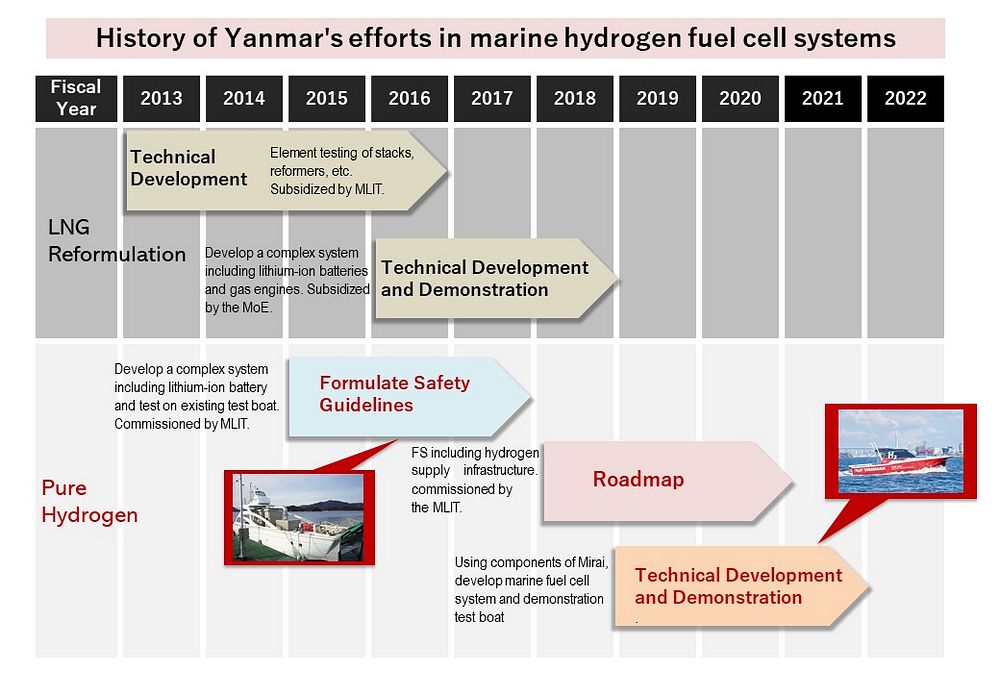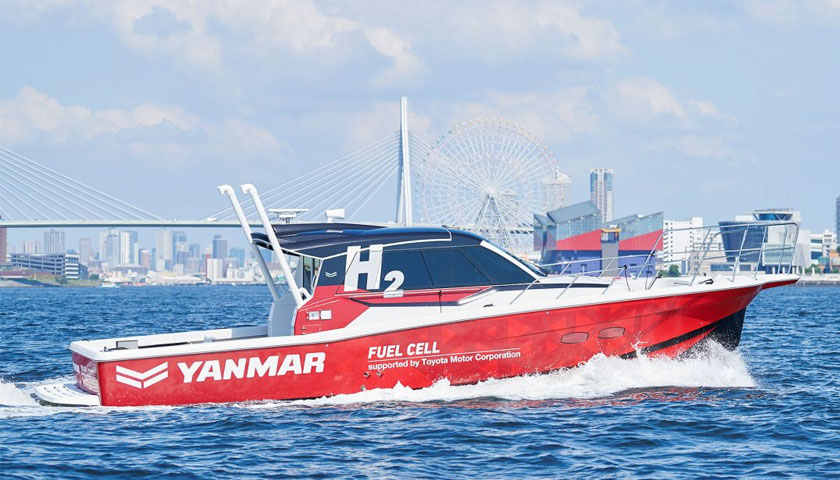Recent years have seen increasing efforts, all over the world, to reduce greenhouse gas (GHG) emissions towards the realization of a carbon neutral society. 123 countries and one region including Japan have already announced the goal of achieving net zero GHG emissions by 2050, and policies to reduce use of fossil fuels are being formulated around the world towards achieving this goal. For example, the European Commission recently announced its intention to ban the sale of new cars with gasoline and diesel-powered engines by 2035. At the same time, hydrogen is attracting worldwide attention as a clean energy source that can replace fossil fuels.
Yanmar has developed a fuel cell technology that uses hydrogen to produce electricity towards the realization of a carbon neutral society.
This release introduces the development of the maritime hydrogen fuel cell system for ships and its demonstration test. Behind the scenes, there was a lot of collaboration not only inside the Yanmar Group, but also with the government, local authorities, and private corporations representing related industries.
The history of Yanmar’s maritime hydrogen fuel cell system development
In the maritime sector, the International Maritime Organization adopted a GHG reduction strategy in 2018, aiming to achieve zero emissions from international marine transportation as early as possible this century, as well as to improve emissions per unit of transport by at least 40% by 2030 and reduce total GHG emissions by at least 50% by 2050, both compared to 2008 levels. Recently, there have been discussions about moving up the schedule. At the same time, there are movements towards reducing NOx emissions in urban areas, environmentally protected areas, and large ports especially in Europe and the U.S.
Yanmar participated in projects funded by the Ministry of Land, Infrastructure, Transport and Tourism (MLIT) , and the Ministry of the Environment (MoE) to develop technology for maritime fuel cell systems, conduct demonstration tests of a fuel cell powered boat, and study shore-to-ship hydrogen refueling procedures.

Advantages of hydrogen as a next-generation energy source.
Hydrogen has great potential as a next-generation energy source:
- It is the most abundant element on earth,
- It can be produced from water and electricity generated by renewable energy sources such as solar, wind, or geothermal,
- There are no CO2 emissions at the time of usage.



